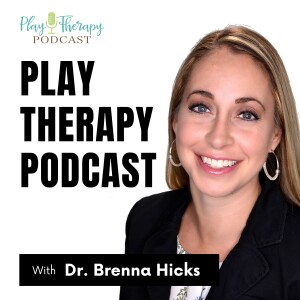
SMART Goals and Child-Centered Play Therapy: How to Bridge the Gap in a School Setting
 2024-01-04
2024-01-04
Download
Right click and do "save link as"
In this episode, I respond to a question from Emery in New Jersey, a school-based child-centered play therapist, about setting therapeutic goals in a school setting that emphasizes SMART (Specific, Measurable, Achievable, Relevant, Time-bound) goals. Emery highlights the challenge of aligning the child-centered model with the school's goal-setting approach. I address this by emphasizing that the child-centered model does have specific and measurable goals, contrary to common misconceptions. I break down the four universal outcomes of child-centered play therapy—increased self-esteem, increased regulation, increased worldview, and increased emotional vocabulary—and explain how these outcomes can be measured and applied as SMART goals.
Podcast HQ: https://www.playtherapypodcast.com
Play Therapy Training HQ: https://www.playtherapynow.com
APT Approved Play Therapy CE courses: https://childcenteredtraining.com
Email me: brenna@thekidcounselor.com
Follow me on Twitter: @thekidcounselor https://twitter.com/thekidcounselor
References:
Cochran, N., Nordling, W., & Cochran, J. (2010). Child-Centered Play Therapy (1st ed.). Wiley.
VanFleet, R., Sywulak, A. E., & Sniscak, C. C. (2010). Child-centered play therapy. Guilford Press.
Landreth, G. L. (2002). Play therapy: The art of the relationship (2nd ed.). Brunner-Routledge.
Bratton, S. C., Landreth, G. L., Kellam, T., & Blackard, S. R. (2006). Child parent relationship therapy (CPRT) treatment manual: A 10-session filial therapy model for training parents. Routledge/Taylor & Francis Group.
Benedict, Helen. Themes in Play Therapy. Used with permission to Heartland Play Therapy Institute.
More Episodes
012345678910111213141516171819
Create your
podcast in
minutes
- Full-featured podcast site
- Unlimited storage and bandwidth
- Comprehensive podcast stats
- Distribute to Apple Podcasts, Spotify, and more
- Make money with your podcast
It is Free
- Privacy Policy
- Cookie Policy
- Terms of Use
- Consent Preferences
- Copyright © 2015-2024 Podbean.com






